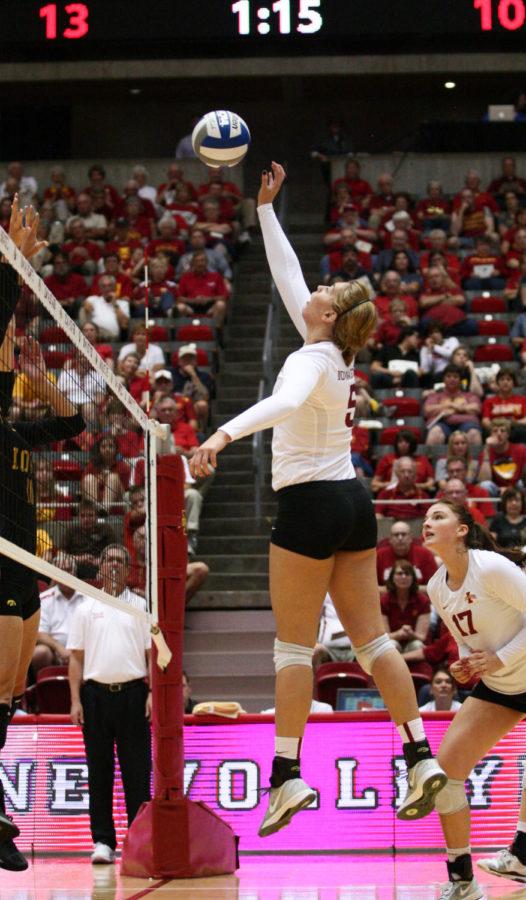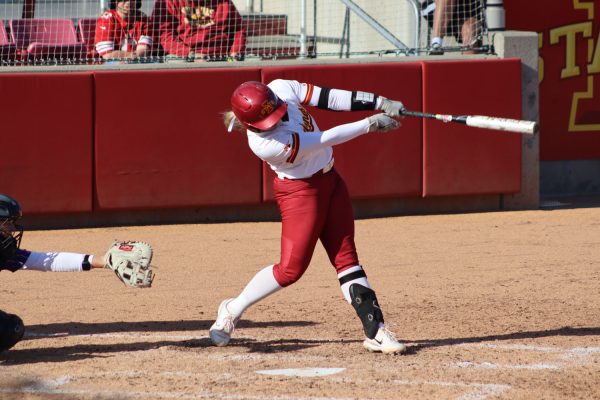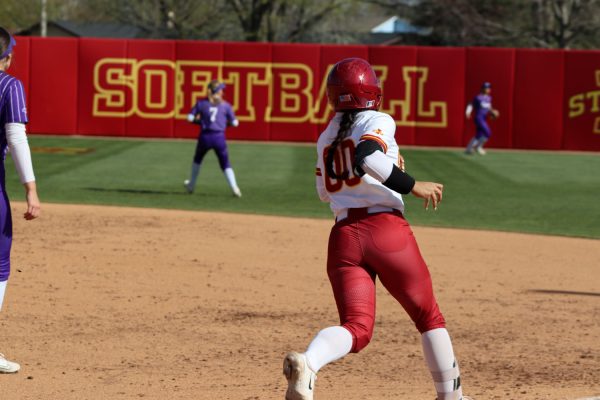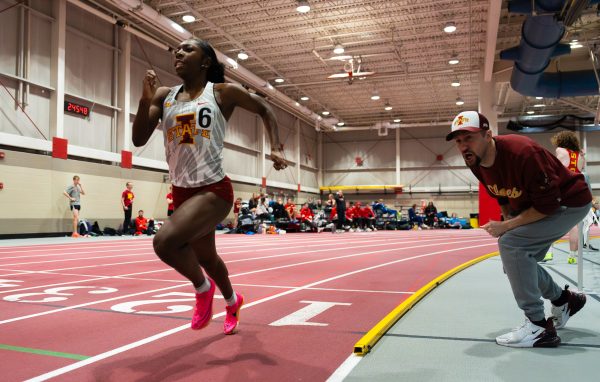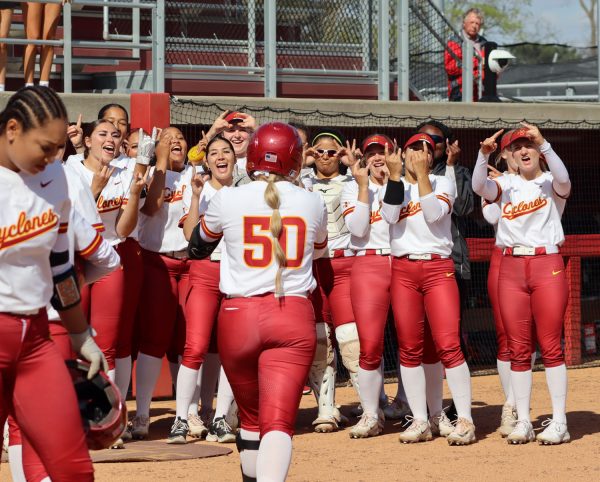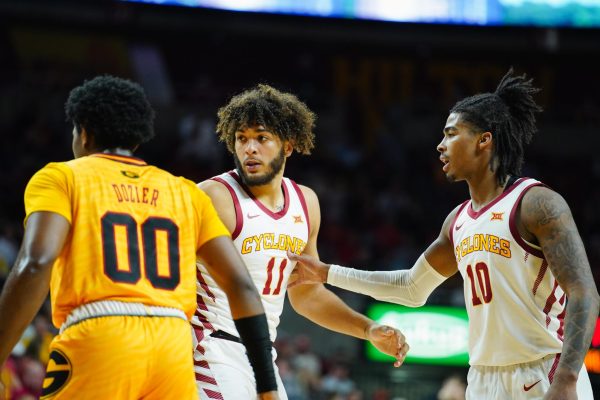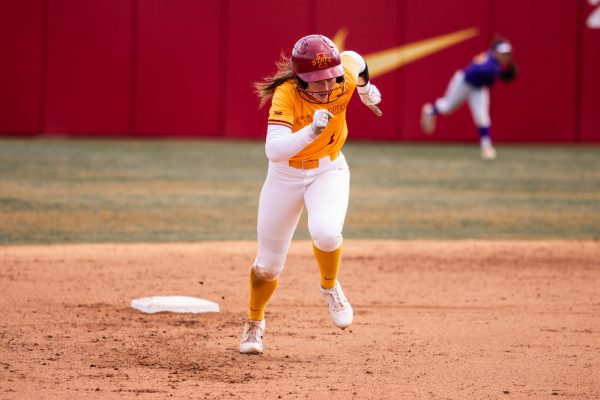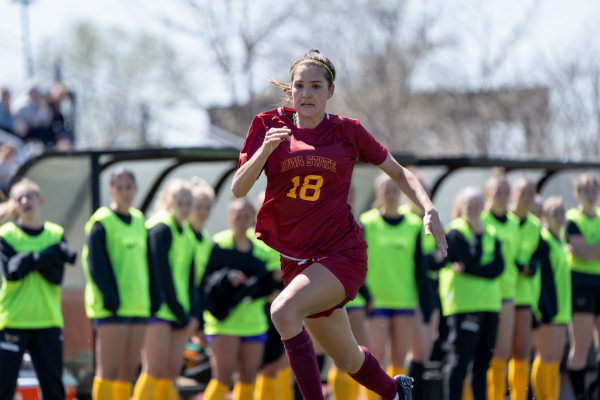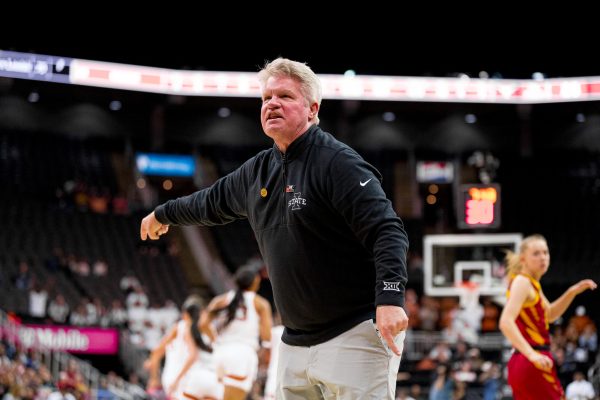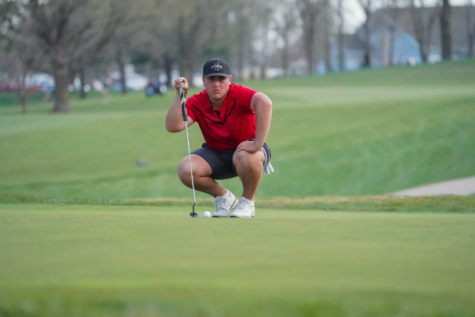The balance of a student-athlete: Education comes first for ISU volleyball
Redshirt sophomore middle blocker Natalie Vondrak taps the ball over the net in the match against the University of Iowa on Sept. 20. The Cyclones swept the Hawkeyes in three sets.
September 24, 2015
Despite all of the glamour associated with Division I athletics, the tale of the student-athlete can’t be told fully without a look behind the scenes.
It may be easy to forget about the “student” aspect of these athletes, as the fans only see the team when it is competing on the court. Despite the praise and spotlight that ISU athletics may offer, balancing schoolwork with the time commitment of a D-I sport is no easy task.
“[The balance] is definitely hard,” said senior Mackenzie Bigbee. “It’s definitely something that not everyone can do.”
As the team begins Big 12 play against Texas Tech on Saturday, and the implications from each match intensify, the practice schedule becomes more rigorous — further highlighting the need for a proper balance of school and volleyball.
In any given week — amid conference play, that is — the time commitment for the average ISU volleyball player ranges from 13 to 15 hours, not including matches. These hours include practice time, team film, individual film, treatments and travel, among other things.
For especially motivated players, such as senior libero Caitlin Nolan, a typical week could result in up to 25 hours of volleyball-related activities. Combine that with a week of class time, homework and study groups, and free time begins to become a rarity.
“Not that volleyball is a job, but the coaches still expect you to commit full-time to it,” Bigbee said. “A lot of people like to think student-athletes have it easy, but with the time commitments, it’s definitely a challenge.”
A player will often have to make a choice between volleyball and schoolwork, especially during a weekend tournament. Will she study in the place of necessary practice time, or will she practice in the place of necessary study time?
An emphasized focus on volleyball may lead to negative repercussions in the classroom, if not prepared for properly.
Not only can too much volleyball have consequences, but extended amounts of time spent on schoolwork — without factoring in volleyball — also has its negative effects.
“When you’re a student-athlete, you can’t pull all-nighters and still perform very well [on the court] the next day,” said ISU volleyball coach Christy Johnson-Lynch. “You really have to be organized and keep track of everything.”
Organization, time management and planning ahead were three key themes put forth by the ISU volleyball players when it came to balancing athletics with education. For them, procrastination is an even less viable option than for a non-athlete who doesn’t have to be prepared to hit the court the following day.
Bigbee said for freshmen especially it is difficult being introduced to both college athletics and a college-level education simultaneously. With time and experience, however, Bigbee and the other Cyclones have learned tactics for finding the right balance.
“You learn as you go on,” said redshirt junior Natalie Vondrak. “Especially the first two years, it [was] overwhelming. But [I] just learned from it.”
Johnson-Lynch, having been an All-American setter for Nebraska in 1994-95, recognizes the players’ need for a proper balance of education and athletics, and has taken measures to help the athletes find that harmony. For example, because the Cyclones didn’t have a mid-week match Wednesday Johnson-Lynch gave the team a day off Monday.
In addition to the occasional Thursday off after a lengthy trip home Wednesday night, Johnson-Lynch has adopted a trend to shorten practices as the season goes along — reducing two-hour practices to 90 minutes or shorter.
These measures to provide the student-athletes additional time outside of volleyball coincide with Johnson-Lynch’s underlying belief that in the life of a Division I athlete, education still takes precedence.
“I think the volleyball players understand that this is not their career,” Johnson-Lynch said. “They’re not going to go play professional, so we try really hard to make sure everyone gets out of here with a really great degree.”

